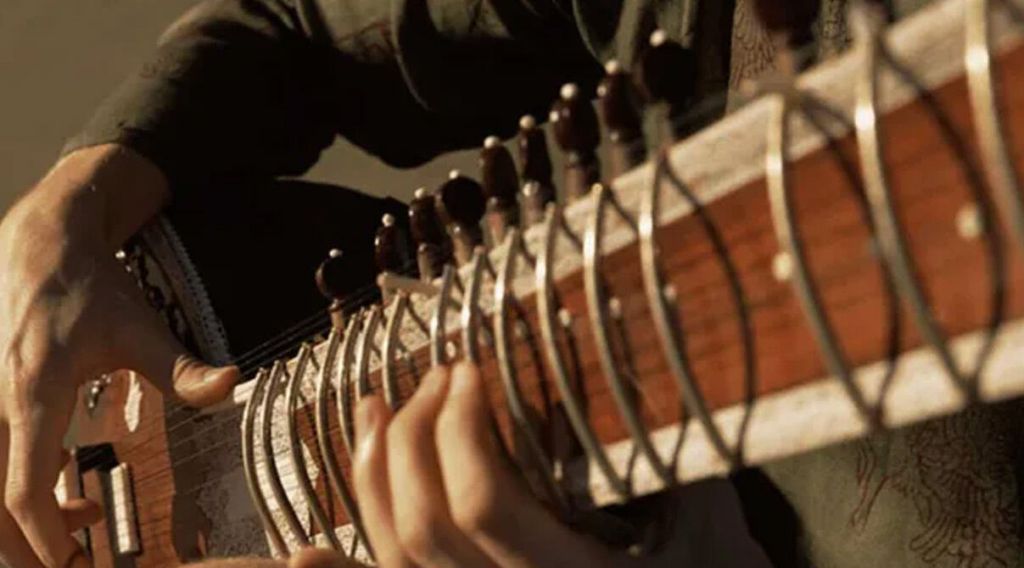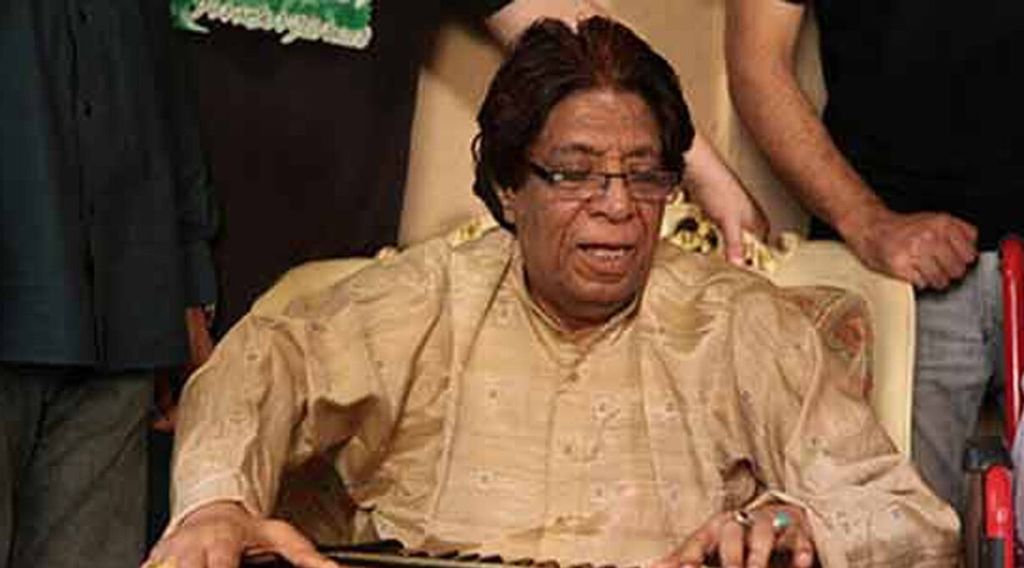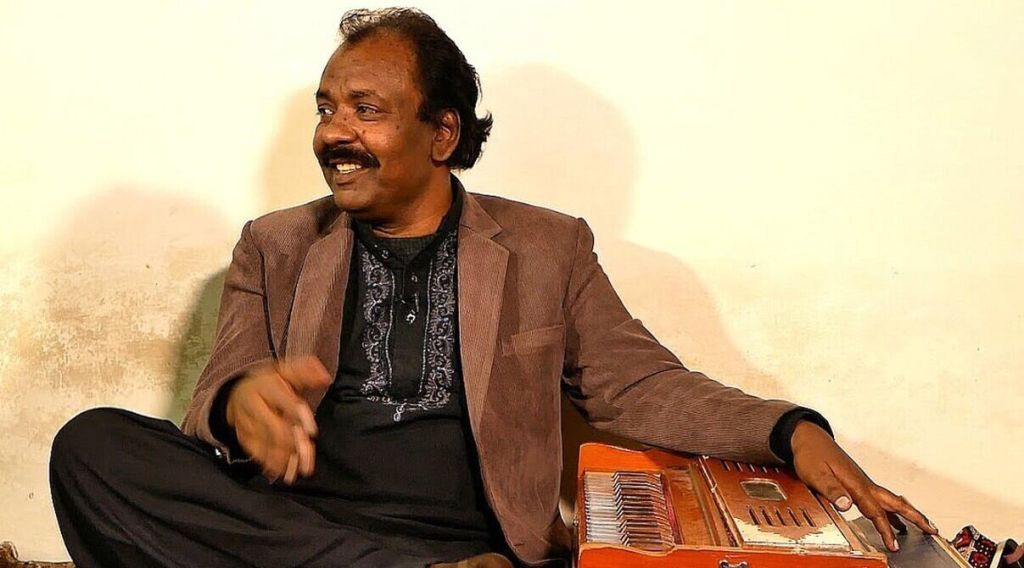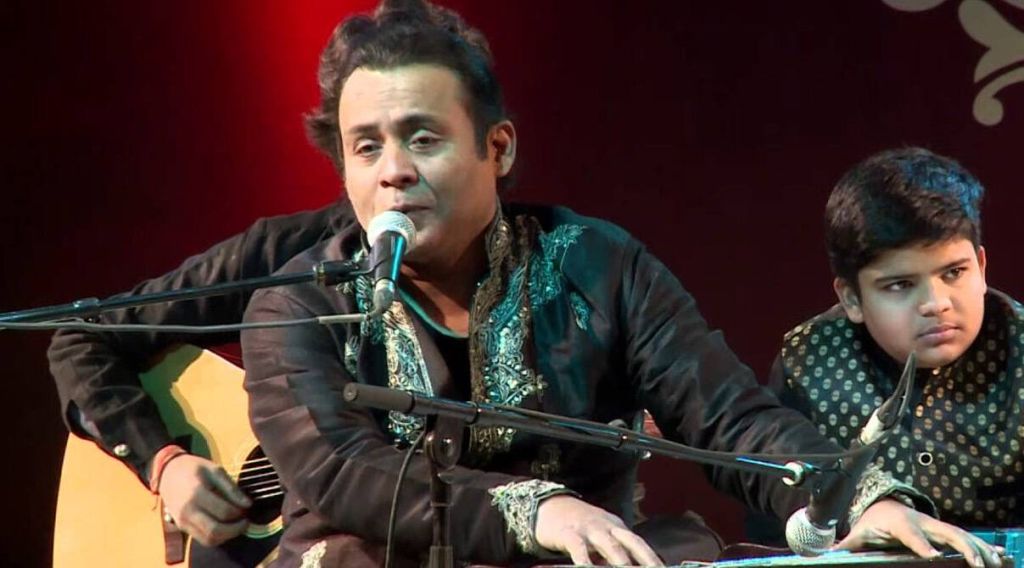Music is the language of the universe, because everyone understands it. Robert G. Ingersol, an American writer and lawyer, praises music as, “Music expresses feeling and thought, without language; it was below and before speech, and it is above and beyond all words.” , while Sarah Dessen, a novelist, says that, “Music is the great uniter. An incredible force. Something that people who differ on everything and anything else can have in common.”
Music and melodies are not only pleasant to listen to, but they also have a profound psychological impact on the human mind. Doctors have tried and succeeded in reviving memories of patients who lost it after trauma through music they loved to listen to. Studies have revealed that different tones, tempos, sounds, and languages have varying impact on human behaviors. Music is powerful enough to invoke physical reactions, such as thrills, chills, and tears. Music relaxes the mind, helps people cope up with stress, boosts emotional health, and can even help people manage pain better. Explains why most of us resort to music after a break up!
Pakistani Classical Singers
The music subcontinent goes by the term Shastri Sangeet. It dates back to more than 1500 BC. Subcontinental classical music doesn’t use notations and scales. The entire focus is on the vocals and the sheer talent of the musicians on various instruments. Because of very particular vocal techniques used by the singers during a performance, our classical music is divided into music schools or gharanas. These gharanas or schools follow a specific Layakari, which means vocal in-tune with the rhythmic cycles. The most prominent music gharanas in Pakistan are:
- Patiala Gharana (prominent artist: Shafqat Amanat Ali)
- Qawwal Bachon Gharana (prominent artists: Ustad Nusrat Fateh Ali Khan and Rahat Fateh Ali Khan)
- Sham Chaurasi Gharana (prominent artist: Nazakat Ali Khan)
- Senia Gharana (prominent artist: Ustad Ghulam Farid Nizami)
- Poonch Gharana (prominent artist: Mohammad Sharif Khan Poonchwaley)
- Punjab Gharana (prominent artists: Shaukat Hussain, Tari Khan and Tafo Khan)
This article covers the history of classical music in Pakistan and 15 most famous classical singers in our country. Read on to discover!
History of Classical Music in Pakistan
Pakistani music dates back to over 5000 years. Pakistan is located in the region where the Indus civilization flourished. This civilization was rich in music, dance, and art. The discovery of the dancing girl and several music pots in the region of Moen Jo Daro signifies that music and dance were a part of active culture of our land in the earlier times. Pakistan’s classical music evolved from the Harrappan melodies. Influences such as that of Turkey, Iran, and Iraq made Pakistani music what it is today. Islamic influence of Sufi music also strengthened the heterogeneous mix of our music. This influence was so strong that it matured and developed into its own identity.
The classical music of Pakistan has two components, sur and lai. The methodical organization of these components into a scale is called a raag. The arrangement of lai in a composition is called taal. In subcontinental music, improvisation plays a vital role during a performance. The Mughal emperors were big fans of music and dance, and celebrated musicians such as Tan Sen flourished during their time.
Pakistan’s Classical Music Scene Currently
Coke Studio, Nescafe Basement, and Pepsi Battle of the Bands are a few music shows that are responsible for propagating and evolving the current music scene of Pakistan. Shahwar Kibria, is a research scholar at the School of Arts and Aesthetics at the Jawaharlal Nehru University, New Delhi. She critically parises Coke Studio as, “Coke Studio has been an onward movement, emerging out of musical dissent that reimagined traditional forms of music with Western instrumentation. Hyatt’s contribution to the musical synergy has been not only to create a balance among the Eastern, Western, and European (as portrayed in the Season 6 of the show) musical traditions, but also to make traditional, folk, and spiritual music workable in the digital ecosystem and on platforms such as YouTube, Vimeo, among others. Thus, the Coke Studio experiment has brought to the fore multiple technological and sonic advancements.”
There are various instruments that are in use in classical music of Pakistan. These are as follows.
- Dholak
- Rubab
- Sarangi
- Guitar
- Drums
- Flute (Bansari)
- Shehnai
- Saxophone
- Piano
- Violin
- Harmonica
- Tanpura
- Sitar
- Ektara
- Harmonium
- Gharha
- Dholak
- Keyboard
- Chimta
- Dhol
- Algoza
- Dafli or Daf
Pakistani classical music is a continuously evolving facade of our art and culture, where new voices, instruments, and musical thoughts are added everyday. Not only in Pakistan, but our music is recognized on the international front as well. Our singers have performed in Nobel Prize Ceremonies, in United Nations meetings, as well as in foreign embassies to promote peace and love in the world. Our singers validate the softer side of Pakistan, and forces the world to look at our country in a positive light. These artists are truly an asset for Pakistan.
Related: Rohail Hyatt: The Maestro Behind the Coke Studio Brand
Classical Music Giants of Pakistan
Pakistan is a country which is rich in musical talent. People from all over the world visit Pakistan to learn music and listen to it. Here is a list of 15 most prominent Pakistani classical singers who have taken the world by storm. From Bade Fateh Ali to Ali Sethi, each singer brings their unique blend of unforgettable charisma and talent.
Read on to find out whether your favorite/s made it to our list!
Amanat Ali Khan
Amanat Ali Khan is masters in classical, pop, and playback singing. Few of his notable works are included in movies such as Tamannah, Zinda Bhaag, Dostana, and Bal Ganesh. This 34 year old singer was the winner of Sa Re Ga Ma Pa Middle East Pakistan Challenge in 2007. He ended up as 2nd runner up in the Indian version of this show. There are numerous awards and accolades that Khan has won over the period of time, including the 3rd Mirchi Music Award in 2010 for best music album. Khan has performed in various music festivals and concerts. He has also been a part of Coke Studio, where he sung Ae wattan k sajeelay jawanon, and Chaa rahi kaali raat in seasons 3 and 10 respectively.
Ustad Bade Fateh Ali Khan
Ustad Bade Fateh Ali Khan was among the pioneer vocalists from the khayal gharana in Pakistan. He was also a leading exponent of Patiala gharana, which is a school of music. He was the younger one of the revolutionary and legendary singing duo, Amanat Ali and Fateh Ali. This duo enjoyed great success and immense prestige in the Indian subcontinent. Shortly after the demise of Amanat Ali, Bade Fateh Ali saw a period of depression. He came out of it soon and performed internationally. He is one of the Pakistani singers who is the recipient of many awards, including Tamgha e Imtiaz and the Pride of Performance.
Hamid Ali Khan
Ustad Hamid Ali Khan belongs to the patiala gharana of music, and he is the master of ghazal singing. He has performed all over the world with other famous artists, mostly from the UK and India, including the notable Fida hussain and Partha Sarathi Mukherjee. He has also released several widely acclaimed record albums. Hamid Ali Khan was the brother of Amanat Ali Khan. HJe received the Pride of Performance in 2007. He was also presented with sitara e imtiaz in 2010. India greatly recognizes his talent as well, since he was presented with several lifetime awards there on his tour in 2007.
Manzoor Ali Khan
Utsad Manzoor Ali Khan belonged to the Gwalior gharana of singing in Pakistan, Gwalior gharana is the oldest singing house in the indian subcontinent. He was one of the first classical Pakistani singers who knew how to go about the regional music of sindh.He took singing and music lessons from his father, Jamalo Khan and another sindhi music maestri, Seendo Khan. Manzoor Ali composed various famous songs such as Shah Abdul Latif Bhittai’s poetry. He was born a Punjabi, but he loved Sindhi so much that he chose to sing in the language. His children also received education in sindhi.
Rafaqat Ali Khan
Ustad Rafaqat Ali Khan is another one on our list of Pakistani singers who is also songwriter. He belongs to the Sham Chaurasia gharana of music style and has been trained as a classical singer by his father, Ustad Nzakat Ali Khan and Salamat Ali Khan, his uncle. He has established himself as a prolific artist over the two decades of his working career. Rafaqat Ali has released a total of 11 music albums. Some of his notable work includes playback singing in big budget movies such as Krrish, Dhoka, and Youngistan. He also featured in Coke Studio’s Tu Kuja Man Kuja in season 9.
Shafqat Ali Khan
Belonging to Sham Chaurasia gharana, Shafqat Amanat Ali is perhaps the most popular classical Pakistani singers of present times. His vocal genre is Khyal, and he is the youngest son of Ustad Salamat Ali Khan. Khan has been performing before live audiences since he was a kid of 7 years. His first performance was in 1979, at Lahore Music Festival. For his excellent body of work, he has been awarded by the government of Pakistan with a Pride of Performance in 2009. He is also a peace ambassador for Universal Peace Federation. The New York Times describes his performances as, “Exuberant complications, in which melodic gestures join hand-waving and synchronized finger-pointing to form an eloquent symbiosis.”
Ali Sethi
Ali Sethi is a prolific writer and one of the well known Pakistani singers. He started his career in the media industry with a role as a singer in The Reluctant Fundamentalist in 2013. He then released many covers, and appeared in Coke Studio singles, where he made his mark as a proficient classical singer. Ali Sethi began creating and releasing original music in 2019 when he collaborated with the producer Noah Gregson. He is the one to introduce the music of ghazal and qawwali to the younger ones in Pakistan. BBC Asian Network’s Haroon Rashid describes him as “the king of modern ghazal.” Some of his notable works include Chan Kithan, Ishq and Rung.
Reshma
Reshma was discovered by television and radio producer Saleem Gilani when she was just 12 years old singing at the shrine of Lal Shahbaz. She was one of the Pakistani singers who got instantly popular for her immaculate folk singing. She had been appearing on national and international television since 1968. Some of her notable songs include Dam Mast Qalandar, Nahion Lagda Dil Mera, We Mein Chori Chori, and Kithay Nain Na Jori. Indian producer Shubhas Ghai used her voice for his film Hero. It featured one of her most famous songs, Lambi Judai. She still recieves appreciaton in India. She as able to meet the Indian Prime Minister Indira Gandhi.
Nusrat Fateh Ali Khan
Nusrat Fateh Ali Khan is perhaps Pakistan’s most prolific singer of all times. He primarily sang Qawwalis and is often referred to as Shehen Shah of Qawwali. He had god-gifted vocal quality which he enhanced by sheer hard work. Nusrat Fateh Ali Khan is known for his high intensity performances that would stretch for several hours. He belonged to the Qawwal Bachon Gharana. He was noted to say that, “To be a qawwal is more than being a performer, more than being an artist. One must be willing to release one’s mind and soul from one’s body to achieve ecstasy through music. Qawwali is enlightenment itself.”
Amit Baruah and R Padmanabhan say about him that, Nusrat Fateh Ali Khan returned the Qawwali to the world. He made it popular again not just in Pakistan and India, the home of the traditional Qawwali, but in the United States, the United Kingdom, Japan and other countries. He performed in over 40 countries and recorded more than 150 albums and sold millions of copies worldwide.”
Abida Parveen
Abida Parveen had been performing at Dragaahs and ursh regularly from a tender age. However, she received her breakthrough in 1973 with a sindhi song Tuhinje Zulfan Jay Band Kamand Widha in 1973. Since then, Parveen has only climbed up the stairs of success. She received international acclaim and awards for her powerful vocals and soulful tones. Parveen is amongst the most humble of artists, who says that her success is all because of Allah and Allah alone. She also has a Nishan e Imtiaz.
Mehdi Hassan
Mehdi Hassan is one of the renowned Thumri Pakistani singers who can sing beautifully on low pitches. His first song was aired in 1952 on Radio Pakistan. His best song is Gulon Mein Rang Bharay. Mehdi Hassan was associated with the ghazal so much so that the original poet, Faiz Ahmed Faiz asked Mehdi Hassan to recite it in a mushaira. He departed from music in the 1980s when he became severely ill. He is the shehenshah of Ghazal.
Rahat Fateh Ali Khan
Rahat Fateh Ali Khan was an integral part of Khan Sahab;s Qawwali group. His association with Khan Sahab was so deep that when Khan Sahab’s daughter accused him of plagiarism, he said that he is Khan Sahab’s legacy in the Qawwal system. He has received national and international acclaim for his soulful voice and style that matches with Nusrat Fateh Ali Khan. He has sung numerous playback numbers for Bollywood. Rahat Fateh Ali Khan has received several accolades for his singing which include a Sitara e Imtiaz and a Filmfare Award for best playback singing.
Nabeel Shaukat Ali
Growing up, Nabeel Shaukat Ali’s ultimate dream was to be a singer. His first performance was in the second season of Azme Alishan National Song Competition. He performed before notable names such as Strings. And was also among the top 5 finalists of Sur Kshetra, and went on to win the show. Nabeel is famous for his Coke Studio number, Umran Langhiyan, which he co-sang with Ali Sethi. He is the maestro of classical singing and known for his grip on the sur and tal of a song. He has also been a part of many concerts, both national and international.
Related: Blast From the Past: Greatest Hits of Iqbal Bano
Farida Khanum
Farida Khanum’s first performance was in 1950, when she was only 21 years old. A producer in Radio Pakistan was able to recognize her talent. Which she joined and made a name for herself. She was invited by then president Ayub Khan for a public recital in 1960. This was a decisive moment for her career, because she became a household name after that. Her evergreen ghazal, Aaj jaane ki zidd na karo became her signature. She re-sung the ghazal Coke Studio’s season 8 in 2015, when she was 86b years old. She spends her time training singers such as Ali Sethi these days.
Fariha Pervez
Fariha Pervez made her name in anchoring and acting before venturing into singing. She released her first music album in 1996, which was titled Nice and Naughty. Her album was a huge success and she began touring afterwards. She also sang in Pakistani movies such as Moosa Khan, Ghunghat, Chief Sahib, Inteha and Sangam. One of her most famous numbers is ‘bo kata’ where she celebrates love in the time of spring. She has also appeared in Yousaf Salahuddin’s Lok Virsa on PTV and sings beautiful covers for songs. Fraiha Other notable songs of Fraiha Pervez include Na Tuteya Ve, Jogi, and Balma.
Pakistan is blessed with musical talent from the Himalayas to the Arabian Sea. Pakistan’s classical music is loved and cherished all over the world. Singers such as Nusrat Fateh Ali Khan and Rahat Fateh Ali Khan are revered so much for their musical genius that they have been invited to perform on prestigious international platforms. Such as in Nobel Peace Prize Ceremony and the United Nations ceremonies. Who are your favorite classical Pakistani singers from Pakistan? Let us know in the comments section below.